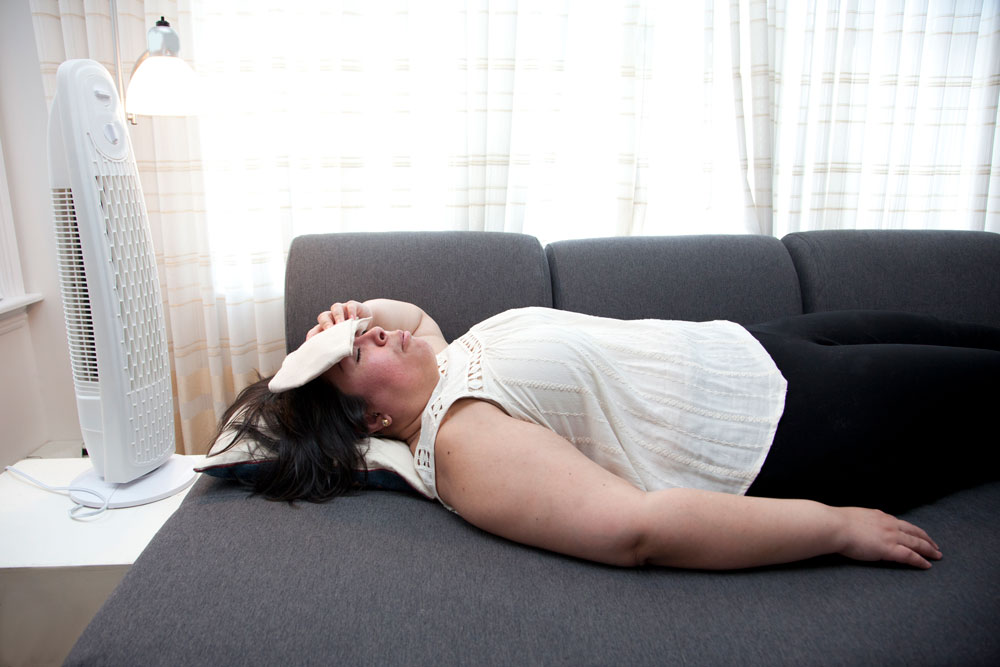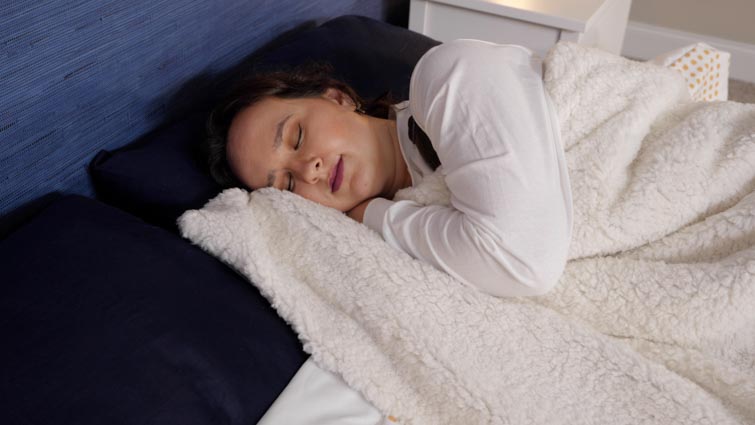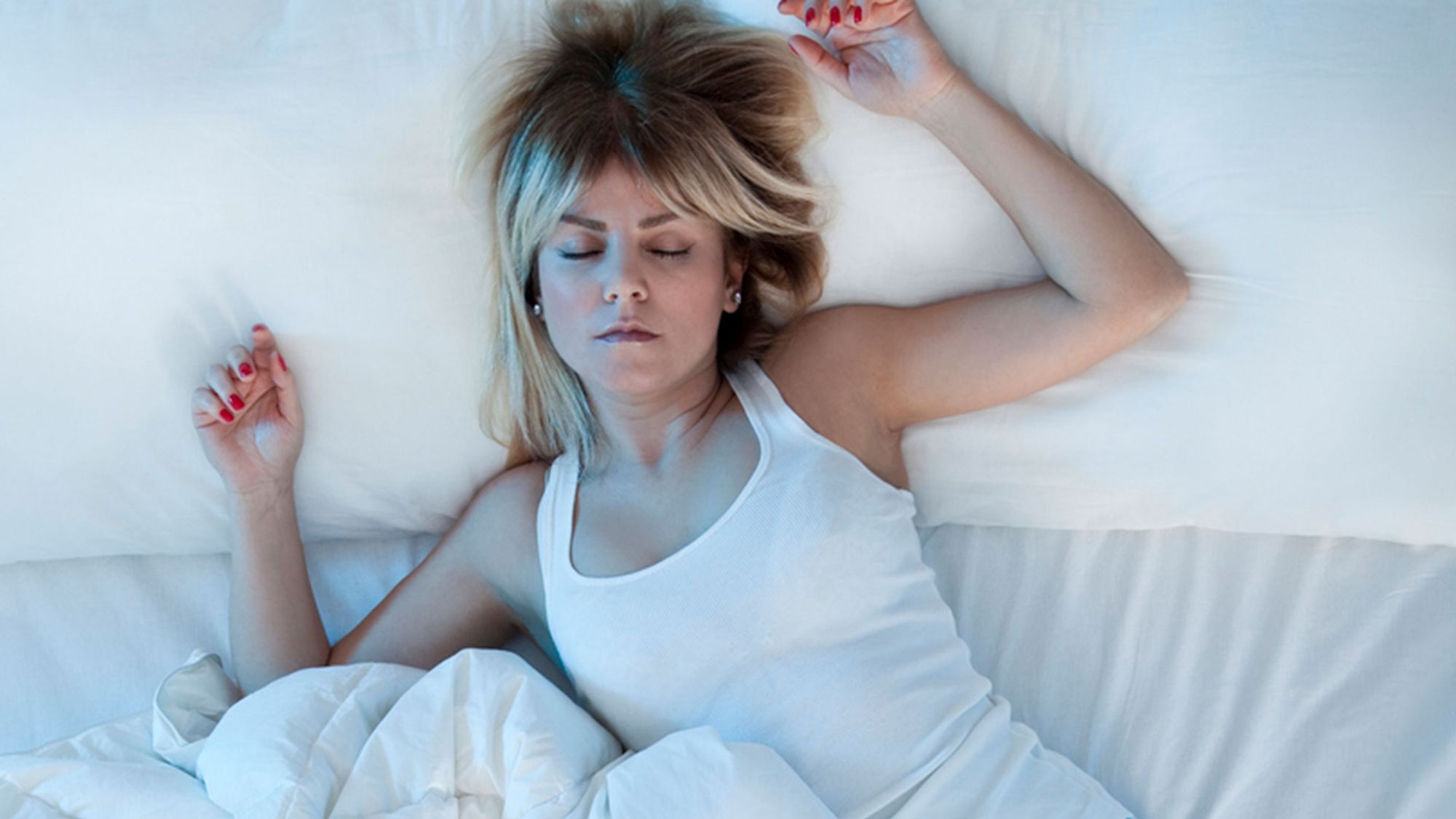
It’s no secret that trying to sleep when it’s hot outside is miserable. You’re tossing and turning, and doing everything you can think of to keep yourself cool. Once upon a time, sleepless nights due to high temperatures was a problem that would plague you for a few weeks out of the year. However, climate change is making these sleepless nights a much more prevalent problem.
According to a Climate Central study, average nighttime temperatures have gotten higher over the past ten years. In fact, they’ve actually increased at a more rapid rate than daytime temperatures, and it’s having some pretty serious impacts on sleep. (1)
Paul Girard, Vice President of Communications at Climate Central told Sleepopolis, “Climate change is making it harder for many people to get the sleep they need. Overnight temperatures are rising around the world, increasingly threatening to reduce sleep quality for millions, exposing them to higher risks of a range of physical and mental health problems. Until the rise of global temperatures is stopped, these risks will keep climbing.” (2)
What Did Climate Central’s Study Find About High Temperatures at Night?
To determine the shift in nighttime temperatures, Climate Central’s study analyzed nighttime temperatures between 2014 and 2023. After collecting that data, researchers then used the Climate Shift Index to compare what the average nighttime temperatures would’ve been without human interference. (1)
While the study was conducted globally, it did focus more specifically on the United States, India, and the United Kingdom. In the United States the study found that most U.S. cities saw 5 days where the minimum temperature was greater than 20 degrees Celsius (or 68 degrees Fahrenheit). While nine of the top ten cities with the most days where the minimum temperature exceeded 20 degrees Celsius were located in California, the study also found that minimum temperatures were rising in state’s that are traditionally colder. For example, every city that the study evaluated in Michigan and Wisconsin saw at least 10 days where the minimum temperature exceeded 20 degrees Celsius. (1)
How Do High Temperatures Hurt Our Sleep?
Higher nighttime temperatures can also have some pretty nasty consequences on our health. Since it has been proven that higher temperatures do harm our ability to sleep, the consequences that come from a lack of sleep or low quality sleep due to high nighttime temperatures can impact our health. (3)
The Climate Central study cites “a study showing that the relative mortality risk on days with hot nights can be 50 percent higher than on days with non-hot nights” among other potential health consequences (1, 4). Some of the other consequences that a lack of sleep can cause include higher risk for physical and mental health consequences like poor cognitive performance and a higher risk of accidents or injury. (5)
How to Stay Cool During Nights With High Temperatures
If nighttime temperatures are on an upward trajectory, then it is not unreasonable to want to find ways to keep yourself cool while sleeping. The general recommendation for sleeping temperatures is between 60 and 67 degrees Fahrenheit (or 15.56 to 19.4 degrees Celsius), so if you live somewhere that is consistently hotter than 68 degrees fahrenheit (20 degrees Celsius),
Sleepopolis suggests trying out cooling bedding, sleeping naked or in cooling pajamas, keeping your bedroom window open, using a fan or portable AC unit, or using blackout curtains. Personally, I’ve found the most success staying cool while sleeping with my ceiling fan turned up as high as it can go and using some lightweight sheets.

Best Cooling Mattress

9 Products Cold Sleepers Need to Stay Warm This Winter

Best Cooling Sheets for Hot Sleepers

Celebs Debate the Perfect Temperature For Sleep — But They Sound Kind of Extreme?
Sources
- Sleepless Nights. Climate Central. June 20, 2024. Accessed July 2, 2024. https://www.climatecentral.org/report/sleepless-nights
- Girard, Paul. Personal Interview. July, 2, 2024.
- Chevance, Guillame, Minor, Kelton, Vielma, Costanza, et al. A systematic review of ambient heat and sleep in a warming climate. Sleep Medicine. 2024. DOI: https://doi.org/10.1016/j.smrv.2024.101915
- He, Cheng, Kim, Ho, Hashizume, Masahiro, et al. The effects of night-time warming on mortality burden under future climate change scenarios: a modelling study. The Lancet Planetary Health. 2022. DOI: https://doi.org/10.1016/S2542-5196(22)00139-5
- Minor, Kelton, Bjerre-Nielsen, Andreas, Jonasdottir, Sigga S., et al. Rising temperatures erode human sleep globally. One Earth. 2022. DOI: https://doi.org/10.1016/j.oneear.2022.04.008